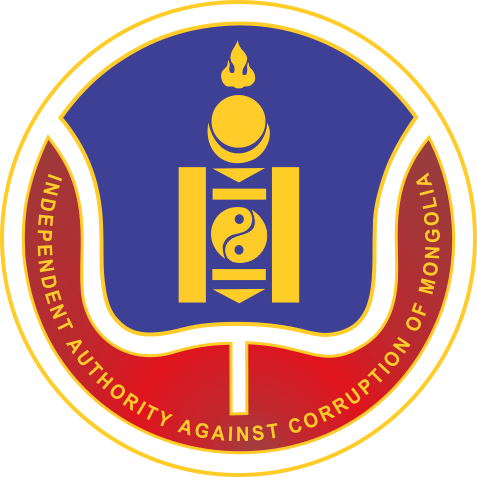11 October, 2021
The Criminal Code of Mongolia provides, depending on the type and form of corruption crime, for deprivation of the right to be appointed to public office for up to 8 years (additional penalty), a fine of 2.7 million to 400 million tugriks, deprivation of the right to travel for 6 months to 5 years, and imprisonment for 6 months to 12 years.
In the framework of the “Diagnostic assessment on the resolution of corruption cases” (published in May 2021) by The Asia Foundation’s Evaluation Team within the “Strengthening the Anti-Corruption Regime in Mongolia” project supported by the Asian Development Bank, analyzed 119 criminal cases sentenced by the Criminal Courts of the first instance in 2017-2019 from www.shuukh.mn, the open electronic database of Mongolian court decisions.
According to the report, 203 people were convicted in 95 cases, 26 people were acquitted in 17 cases, 10 cases involving 26 people were dismissed, of which 5 cases were dismissed on the grounds that the statute of limitations had expired[1]. Of these convicts, 50.7 percent were fined, 75.8 percent were disqualified from holding public office as an additional penalty, and only 19.2 percent were sentenced to imprisonment (Figure 1).
Figure 1. Types of penalty
Please click on the image to enlarge.
In addition, 3.4 percent of those convicted were pardoned (20.6 percent in 2017 and 6.1 percent in 2018) and 52.5 percent were sentenced to 1-3 years probation.
In 2017, 20 people were sentenced to an average of 33 months or 2.8 years in prison, in 2018, 7 people were sentenced to an average of 25.5 months or 2.2 years, and in 2019, 12 people were sentenced to an average of 25.3 months or 2.1 years in prison.
Table 1 shows that the number of cases decided by the courts has increased year by year, but the term and frequency of imprisonment have decreased and the number of parolees has increased.
Another issue mentioned in the study is that the percentage of convicts released before the end of their sentence is relatively high, at 60-80 percent of all convicts of corruption crime in a given year. In other words, these individuals are being released on parole under Article 6.12, paragraph 1, of the Criminal Code of Mongolia[2], and are serving only about half of their sentences in person.
Please click on the image to enlarge.
These figures and facts suggest that less than one-fifth of those convicted of corruption crime have been sentenced to an average of 2.4 years in prison, but 60 to 80 percent of them are released before the end of their sentences.
This situation suggests that the implementation of sentences of imprisonment is insufficient and that the effect of legal sanctions has been lost. This, on the other hand, has negative consequences, such as undermining the efforts of the judiciary and law enforcement agencies, undermining public confidence, and encouraging offenders.
Therefore, domestic law needs to be harmonized with Article 30.5 of the UN Convention against Corruption, which states that “Each State Party shall take into account the gravity of the offences concerned when considering the eventuality of early release or parole of persons convicted of such offences”. In other words, there is a need to strengthen the conditions for the early release of convicts who have committed corruption crimes, and to include in the Criminal Code a provision that does not provide for early release in the event of serious corruption crimes.
For further information, please contact:
Erkhemjargal Odsuren, Officer, Research and Analysis Division
Independent Authority Against Corruption of Mongolia
erkhemjargal@iaac.mn


.jpg)






